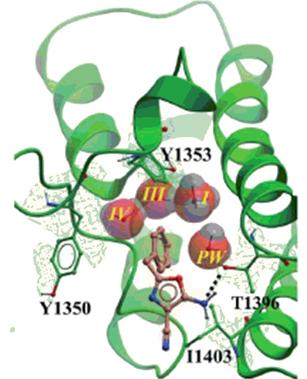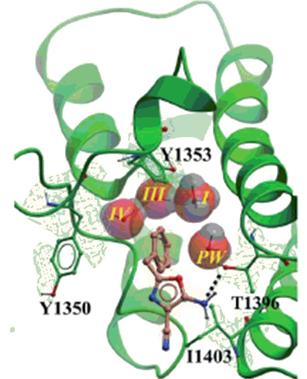
Credit: University of Sussex
The University of Sussex is to carry out vital research into skin cancer thanks to a new grant from The Engineering and Physical Sciences Research Council (EPSRC).
The Spencer Lab, in the University's Chemistry Department, has been awarded a £428K grant to research a protein called PHIP(2) which is present in high amounts in melanoma.
Melanoma is a devastating cancer of the skin, the occurrence of which is on the rise. It can be treated surgically but long term survival tends to be poor and clinical treatments often prove too aggressive or ineffective.
Professor Spencer's Lab, along with Paul Brennan and Frank von Delft at the Structural Genomics Consortium at Oxford University, will work to target the PHIP(2) protein with drug like molecules to try to stop the cancer's progression.
The new project will enable the scientists to study the role the protein plays in the development of melanoma and other aggressive cancers.
Professor John Spencer, from the University of Sussex, said: "If we are to understand melanoma better it is crucial we work to find out why this protein is present in high amounts of this type of skin cancer.
"This new project work stems from earlier grant funding from Worldwide Cancer Research where we found a new use from molecules that we'd initially made to target another cancer protein called p53.
"It pays to recycle molecules as it takes a lot of effort to make them so finding another, unexpected application is rewarding."
The project will also include working with Dr David De Semir, from the California Pacific Medical Center, a world expert in PHIP(2) biology and Bio-Techne/Tocris Biosciences and Selcia industrial partners, who will help exploit the findings in order to make them widely available to cancer researchers.
Rob Felix, Head of Product Management for Tocris at Bio-Techne, said: "After many years of successful collaboration, Tocris Bioscience are delighted to now have the opportunity to work with the Spencer group on a project to develop truly novel and innovative chemical probes for cancer research."
###
To read more about the work of Professor Spencer's Lab, which is situated in the University of Sussex's Life Sciences School, please visit http://www.sussex.ac.uk/lifesci/spencerlab/
Communications and External Affairs | University of Sussex T +44 (0)1273 678888 | [email protected]?http://www.sussex.ac.uk/newsandevents
Notes to Editors:
The University of Sussex's School of Life Sciences is one of the largest academic schools at the University of Sussex. With 96 per cent of its research rated as world leading, internationally excellent or internationally recognised (REF 2014), it is among the leading research hubs for the biological sciences in the UK. The School is home to a number of prestigious research centres including Sussex Neuroscience, the Genome Damage and Stability Centre and the Sussex Drug Discovery Centre, where academics work with industry to translate scientific advances into real-world benefits for patients.
Media Contact
[email protected]
[email protected]
01-273-678-888
@sussexunipress
http://www.sussex.ac.uk
Original Source
http://www.sussex.ac.uk/newsandevents/pressrelease/id/40899





